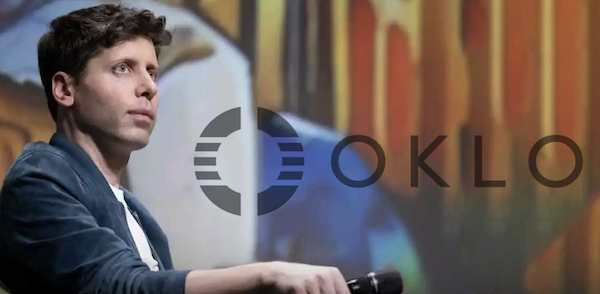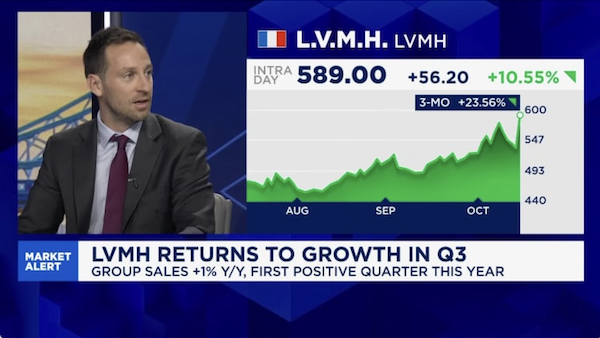Market scorecard
US markets were on a rollercoaster ride yesterday, with stocks swinging wildly before the Nasdaq and S&P 500 ultimately closed higher. Bank of America (+4.4%) and Morgan Stanley (+4.7%) led financials higher after upbeat earnings reports.
In company news, Apple refreshed its iPad Pro, Vision Pro, and MacBook lineup with its new M5 chip ahead of the holiday rush, while ramping up manufacturing in Vietnam to diversify away from China. Elsewhere, ASML shares climbed 2.7% after the company said demand for its cutting-edge lithography machines is surging on the back of the AI boom. Finally, Papa John's popped 9.4% on reports that Apollo Global Management has offered to take the pizza chain private at $64 per share.
Here's how it went, the JSE All-share closed up 0.68%, the S&P 500 rose 0.40%, and the Nasdaq was 0.66% higher. Impressive.
Our 10c worth
One thing, from Paul

Here at Vestact, we are always on the lookout for exciting new investment opportunities, but we do have to temper our enthusiasm. Energy stocks have been booming, on the assumption that electricity usage in AI datacentres will continue shooting higher.
According to the Wall Street Journal, a group of non-revenue-generating energy companies are now collectively worth more than $45 billion on the idea that someone will one day pay for the power they hope to generate.
The biggest of these is the OpenAI CEO Sam Altman-backed nuclear startup Oklo, whose shares have risen about eightfold year to date. Although Altman stepped down from the board, he remains a shareholder, so the association is still relevant.
Oklo is a serious company, with US government support, that is developing small modular nuclear reactors, but doesn't yet have a license from the US Nuclear Regulatory Commission or binding contracts with anyone. It has a market cap of $25 billion, making it the biggest US-incorporated public company that generated no revenue in the past 12 months.
Haha, that's classic. $25 billion used to be a lot of money. Stocks like Oklo may be the "next big thing" but we'll wait a few years before considering them for our clients. We prefer companies that are well-established, with actual revenues and at least $100 billion in market capitalisation.
Michael's musings

South Africa's GDP growth rate has been below 1% for nearly 3 years. The last time we broke above 2% GDP growth was in the fourth quarter of 2020, a Covid rebound. These numbers are abysmal, particularly when considering the current global booms in mining and tourism - two industries in which we should be thriving.
No growth means no asset price appreciation, and a soaring unemployment rate. It is not hard to know why we have the problems that we do. Rampant government corruption has resulted in collapsing infrastructure (electricity, water, roads, rail, ports), and without infrastructure, an economy can't grow.
The cheapest and easiest stimulant to boost an economy is through confidence. When investors are confident, they are willing to spend money, which boosts the economy and encourages other investors to spend.
According to the Reserve Bank's September quarterly bulletin, private companies are sitting on R1.8 trillion in cash, up from R1.1 trillion in 2019. That is money that could be spent in the economy if businesses were more confident in South Africa's future. GDP growth of less than 1% isn't enough to get investors out of bed.
There's still a long way to go, but we may have turned a corner. Electricity supply and availability are improving; Transnet is seeing increased rail traffic; and our ports are no longer amongst the worst in the world.
Bright's banter

LVMH lit up Paris trading screens yesterday, with shares surging nearly 13%. This was their biggest jump since 2001, following the luxury giant's unexpected return to sales growth.
Third-quarter revenue came in at EUR18.3 billion, up 1% organically, ending two straight quarters of decline. Crucially, sales in Asia (including China) rose 2%, the first uptick this year, while the US posted a 3% gain and Europe slipped 2%.
Every division beat expectations, from fashion and leather goods to a revived wines and spirits arm, buoyed by US Champagne restocking. Beauty retailer Sephora continued to shine.
The rebound rippled across the luxury sector, lifting Kering (+4.8%), Hermes (+7.4%), Richemont (+6.3%), and Moncler (+7.8%), while analysts cheered signs of recovery from the world's most influential fashion house.
Investors had braced for more weakness, so even modest growth felt like a luxury-sector sigh of relief. With improving demand from China, easing tariff fears, and champagne flowing again, Bernard Arnault's empire just gave the market its most stylish comeback in years.
Linkfest, lap it up
Trains are a marvellous form of transportation. After more than 20 years, the line between George and Knysna is set to reopen - The Outeniqua Choo Tjoe will run again.
A lot of people don't trust self-driving cars. However, stats show that they are much safer than human drivers - Please let the robots have this one.
Signing off
Asian markets are off to a strong start this morning, with broad gains across the region. AMP (formerly Australian Mutual Provident Society) surged more than 8.4% after the financial services group reported a 3.6% quarterly rise in total assets under management to A$159.5 billion.
In local company news, Cashbuild's R93 million deal to acquire a 60% stake in Allbuildco Holdings has cleared all regulatory hurdles and will take effect on 1 December.
The Rand is trading at around R17.34 to the greenback.
Large companies with results out today include Taiwan Semiconductor, Charles Schwab and Intuitive Surgical. US equity futures are slightly in the green pre-market.
Keep well.